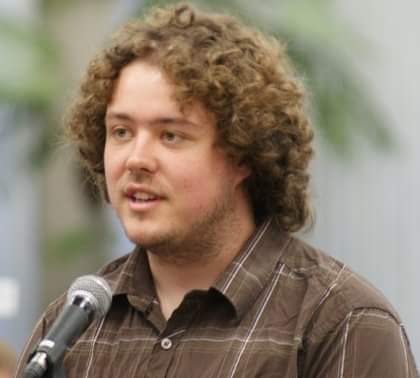A response to “From Non-Religion to Unbelief? A Developing Field…
by Alex Uzdavines[1]

For the past few years, the term “unbelief” has made me academically disquieted in a way I’ve never quite been able to place. This is great since, as explained by Dr. Chris Cotter, eliciting this sort of feeling was basically the point of the term. Until now, I hadn’t been aware that the scare-quotes surrounding the term were intentional[1] and thought it was just another attempted umbrella descriptor (e.g. none, nonreligious, etc) for the population the Understanding “Unbelief” project was built to study. “Unbelief” is that, as well, but it’s also only in use because we don’t have anything that would serve better.
This podcast acted as a five-year follow-up to Lee and Cotter’s first podcast where, along with Ethan Gjerset Quillen, they discussed how the terminology used in studying nonreligion was likely to be creating artificial categories. At the time, Lee’s hope was to have moved beyond wrangling basic terminology over the next few years. Suffice to say, that didn’t happen.
I don’t think there’ll come a point when our field[2] will have something to replace “unbelief” as a better umbrella term. Part of this is succinctly summarized by an xkcd comic[3] about new standards in the tech industry and discussions about “nones” (Hovdkinn, 2018). Another part comes from the history of the Psychology of Religion and Spirituality (PRS), my own parent field. Neither of the constructs post-“of” have well-settled definitions and researchers within PRS are beginning to come around to the idea that they need to do the same sort of foundational work currently being done by the Understanding “Unbelief” project (e.g. Park, 2014; Streib & Hood, 2016). Given that PRS’s roots go back to William James, I’m not optimistic for our field’s ability to come to a better term than “unbelief”. Which is why I’m so happy about the intentional scare-quotes. It’s good to be uncomfortable with umbrella categories and the Faustian-bargain of operationalization those of us on the experimental/quantitative side need to agree to in our work. Having to lace manuscripts with scare-quotes will hopefully serve as a good reminder to strive for “better” instead of settling on a “best” (Cragun, 2016).

Which is okay, really, as Lee discusses early in the podcast and becomes increasingly apparent throughout. As a field[4], we’re starting to make headway in getting a more nuanced view of “unbelievers”. People who say they’re neither religious nor spiritual might still ascribe to supernatural beliefs (Irvine & Kyriakides, 2017; Stauner et al., 2016) or self-describe as “religious and spiritual” Atheists (Coleman, 2015; Coleman, Silver, & Hood, 2016), both of which fall under the broad label of “unbelief.” In essence, there’s been a lot more ground to cover in getting a “better” depiction of the beliefs of “unbelievers” than Lee’d thought in 2012. I’m glad to be working in a field[5] where many researchers are wanting to be cautious in clearly laying a foundation before leaping into applied work.
Miscellaneous thoughts about the podcast:
- At one point Lee rattles off some demographic facts about “unbelief” that boil down to it being a major “belief” system for much of the world, which is why getting a wider foundation on what “unbelief” actually means is a good idea. She then, apologetically, refers to the facts and summary reasoning as having, “put it somewhat crudely.” Crudely is great! Ideal, even, when trying to move beyond the loftiest reaches of academia. The work Lee and the other Understanding “Unbelief” researchers are doing is really important for giving voice to a whole lot of people traditionally left out of the “of religion” fields. Boiling down this work into something that’s “crude” without losing the nuance that makes it worthwhile will be important in the long run. Lee does a darned fine job of it, here.
- It would’ve been great to hear more about the problematic aspects of “worldviews.” My work and thinking tends to fit into the “meaning systems” model[6] and hearing more about alternate conceptualizations would’ve been great (Park, 2010, 2014b; Taves, 2016).
- I was glad to hear more about work moving outside WEIRD territory. Similarly, work within WEIRD nations geared toward marginalized communities within those nations.
- Moving beyond “Atheism” and the highly masculinized nature of it is refreshing. The modern Atheist movement has been generating #metoo stories for quite a long time and often veers into brazenly misogynistic territory even when leaders aren’t engaging in outright sexual assault and targeted harassment. Which is to say, it’s a lot like academia and I’m damned glad there’s active push against it.
References
Coleman, T. J. I. (2015). Identity is Complex: On Becoming a “Spiritual” and “Religious” “Atheist.” In Changes in Religion and Worldview: Longitudinal Perspectives.
Coleman, T. J. I., Silver, C. F., & Hood, R. W. J. (2016). “…if the universe is beautiful, we’re part of that beauty.” – A “Neither Religious nor Spiritual” Biography as Horizontal Transcendence. In H. Streib & R. W. J. Hood (Eds.), The Semantics and Psychology of Spirituality. A Cross-Cultural Analysis. Dordrecht, NL: Springer.
Cragun, R. T. (2016, June 13). You Get What You Ask For: The Importance of Question Wording in Surveys. Retrieved February 25, 2018, from https://nsrn.net/2016/06/13/blog-series-you-get-what-you-ask-for-the-importance-of-question-wording-in-surveys/
Hovdkinn, E. (2018, February 21). Who’s the Master of None? Retrieved February 25, 2018, from https://nsrn.net/2018/02/21/whos-the-master-of-none/
Irvine, R., & Kyriakides, T. (2017, October 24). Understanding Unbelief – understanding what? Retrieved February 25, 2018, from http://www.open.ac.uk/blogs/religious-studies/?p=541
Park, C. L. (2010). Making sense of the meaning literature: An integrative review of meaning making and its effects on adjustment to stressful life events. Psychological Bulletin, 136(2), 257–301. https://doi.org/10.1037/a0018301
Park, C. L. (2014a). Integrating positive psychology into health-related quality of life research. Quality of Life Research, 24(7), 1645–1651. https://doi.org/10.1007/s11136-014-0889-z
Park, C. L. (2014b). Religion and Meaning. In R. F. Paloutzian & C. L. Park (Eds.), Handbook of the Psychology of Religion and Spirituality. Guilford Publications.
Stauner, N., Exline, J. J., Grubbs, J. B., Pargament, K. I., Bradley, D. F., & Uzdavines, A. (2016). Bifactor Models of Religious and Spiritual Struggles: Distinct from Religiousness and Distress. Religions, 7(6), 68. https://doi.org/10.3390/rel7060068
Streib, H., & Hood, R. W. J. (Eds.). (2016). Semantics and Psychology of Spirituality: A Cross-Cultural Analysis. Springer International Publishing. Retrieved from //www.springer.com/us/book/9783319212449
Taves, A. (2016, October 4). On the Virtues of a Meaning Systems Framework for Studying Nonreligious and Religious Worldviews in the Context of Everyday Life. Retrieved February 25, 2018, from https://nsrn.net/2016/10/04/methods-series-on-the-virtues-of-a-meaning-systems-framework-for-studying-nonreligious-and-religious-worldviews-in-the-context-of-everyday-life/
[1] My title is a reference to an American Cold War era satire: Dr. Strangelove or: How I Learned to Stop Worrying and Love the Bomb (*I attempted to blog on the keyboard of a giant by borrowing Dr. Simine Varzire’s footnoting style and would strongly recommend people go read the original source. This caused…difficulties with the uploading tool for the blog, as you may note further down.)
[1] I did, literally, LOL at this point in the podcast. Hopefully this didn’t overly disturb the person taking a make-up exam one cubicle over
[2] Secularity studies? Unbelief research? A subset of <field> of religion/spirituality looking at “unbelievers”? Whatever-the-current-plurality-of-people-studying-populations-sorta-related-to-whom-I’m-also-studying-are-calling-it-this-year?
[3] As are most things in life, frankly
[4] ibid
[5] ibid
[6] Dr. Ann Taves’ 2016 NSRN blogpost is a particularly good place to start if you’re reading this and haven’t gotten into meaning-making, yet.



